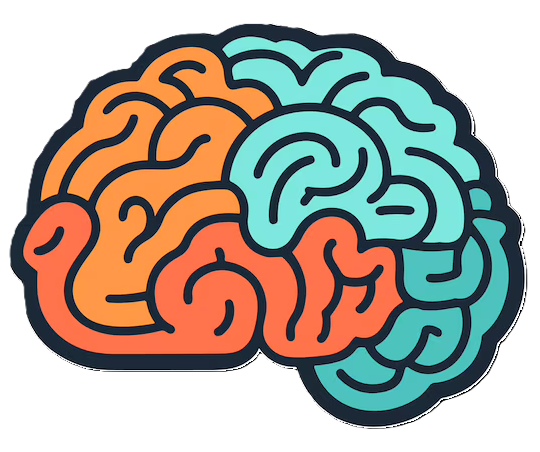How many times have you felt that in your work there is a lot of talk about results, but little about how we feel when we achieve them?

In most organizations, emotional issues remain a “soft”, invisible topic... until they explode.
A bad environment, staff turnover, emotional exhaustion, burnout. You don't fix all that with more meetings. It is fixed with people who know how to manage the most complex of all: emotions.
Training your team in emotional competencies is not just a fad or a luxury. It is an urgent necessity.
Because if we don't learn to manage what we feel, we end up trapped in toxic dynamics, avoidable conflicts and a silent discomfort that wears down even the best talent.

And you may ask, but what are emotional competencies?
Emotional competencies are those skills that allow you to recognize, understand and regulate your emotions, as well as relate empathetically and constructively with others.
They are not an “extra”; they are the glue of human relationships.
Rafael Bisquerra (2003), one of the leading experts in emotional education, defines emotional competencies as a set of knowledge, abilities, skills and attitudes necessary to understand, express and regulate emotional phenomena adequately.
According to Bisquerra, these competencies are organized into five major blocks:

Emotional awareness

Emotional autonomy

Emotional regulation

Social competence
Well-being and life skills

These are not just educational theories; applied to organizational contexts, they are the basis for healthy, resilient and emotionally intelligent teams.

And you will say, why does this transform teams?
Because teams do not break down due to lack of talent...
They break because of too much unspoken tension, mismanaged egos, silenced insecurities and poorly digested emotions. And the studies say so.
And it's not just us who say so, it's also the science:
Improved work climate
Teams where people speak respectfully, listen attentively and manage conflict with maturity work better. A study by Côté (2014) showed that emotionally intelligent leaders generate healthier and more collaborative work climates.

Decreases stress and burnout
Did you know that emotional intelligence protects from emotional exhaustion? Extremera et al. (2018) found that those with higher emotional competence suffer less stress in demanding work environments.

Strengthens sense of belonging
When you can be yourself, feel seen and understood, work stops being just a chore. It becomes a place where you want to be. Salovey and Mayer (1990) already talked about how emotional intelligence enhances human relationships and, with it, the sense of teamwork.

Improved well-being and satisfaction
A meta-analysis by Sánchez-Álvarez, Extremera and Fernández-Berrocal (2016) confirmed that greater emotional intelligence is associated with greater psychological well-being and life satisfaction.

And as Bisquerra (2015) states, “emotional competencies are a protective factor against emotional distress, and a direct pathway to improved personal and social well-being”.
And you might be thinking, how do you develop emotional competence in a team?
Like any human skill, it is not acquired overnight. It is cultivated. It is practiced. It is breathed in on a daily basis. Most importantly, it requires intention and awareness.
It is not enough to know what emotional education is, you have to put it into play in difficult conversations, in disagreements, in moments of pressure...
Here are some ideas that you can start applying in your organization:
- Encourage spaces where people can express themselves without fear of being judged. Active listening is more necessary than we think.
- Accompany leaders in their emotional development. Leading from empathy and authenticity is much more effective than leading from control and power.
- Offer experiential workshops where topics such as stress management, self-care, empathy or assertiveness are worked on.
- Review what messages your organizational culture conveys: Are emotions valued or hidden? Is vulnerability seen as a strength or a weakness? How your organization responds to these questions says a lot about its ability to adapt, innovate and grow.
At INEEW, we measure the emotional competencies of your organization and the real impact of developing them. Because working on the emotional side is not only a commitment to well-being: it is a strategic investment.
For reflection...
We cannot build healthy teams if we avoid looking at what the people who make them up feel.
We cannot talk about well-being at work if we do not teach people to inhabit and regulate their emotional world.
As Rafael Bisquerra states, working on emotional competencies is to open a direct path to personal and collective well-being.
In other words, in our organizations it is not only important what we do, but also how we feel when we do it.
And maybe, just maybe, this is the beginning of a work that instead of wearing out... begins to heal.
Betting on emotional development is betting on the health of your team and the humanity of your organization.
At INEEW we not only believe it: we make it possible.
We accompany people, teams and leaders who want to grow emotionally and build more conscious and healthy work spaces.
Would you like to start that journey with us? We are ready to walk with you.

References
Bisquerra, R. (2003). Educación emocional y bienestar. Barcelona: Praxis.
Bisquerra, R. (2015). La fuerza de la educación emocional. Barcelona: Editorial UOC.
Côté, S. (2014). Emotional intelligence in organizations. Annual Review of Organizational Psychology and Organizational Behavior, 1(1), 259–288. https://doi.org/10.1146/annurev-orgpsych-031413-091233.
Extremera, N., Mérida-López, S., Sánchez-Álvarez, N., & Quintana-Orts, C. (2018). How does emotional intelligence help teachers to feel better? The mediating role of perceived stress. Journal of Occupational Health Psychology, 23(1), 151–160. https://doi.org/10.1037/ocp0000088.
Goleman, D. (1995). Emotional intelligence: Why it can matter more than IQ. New York: Bantam Books.
Salovey, P., & Mayer, J. D. (1990). Emotional intelligence. Imagination, Cognition and Personality, 9(3), 185–211. https://doi.org/10.2190/DUGG-P24E-52WK-6CDG.
Sánchez-Álvarez, N., Extremera, N., & Fernández-Berrocal, P. (2016). The relation between emotional intelligence and subjective well-being: A meta-analytic investigation. The Journal of Positive Psychology, 11(3), 276–285. https://doi.org/10.1080/17439760.2015.1058968.

Emotional competencies: The missing ingredient in your work team